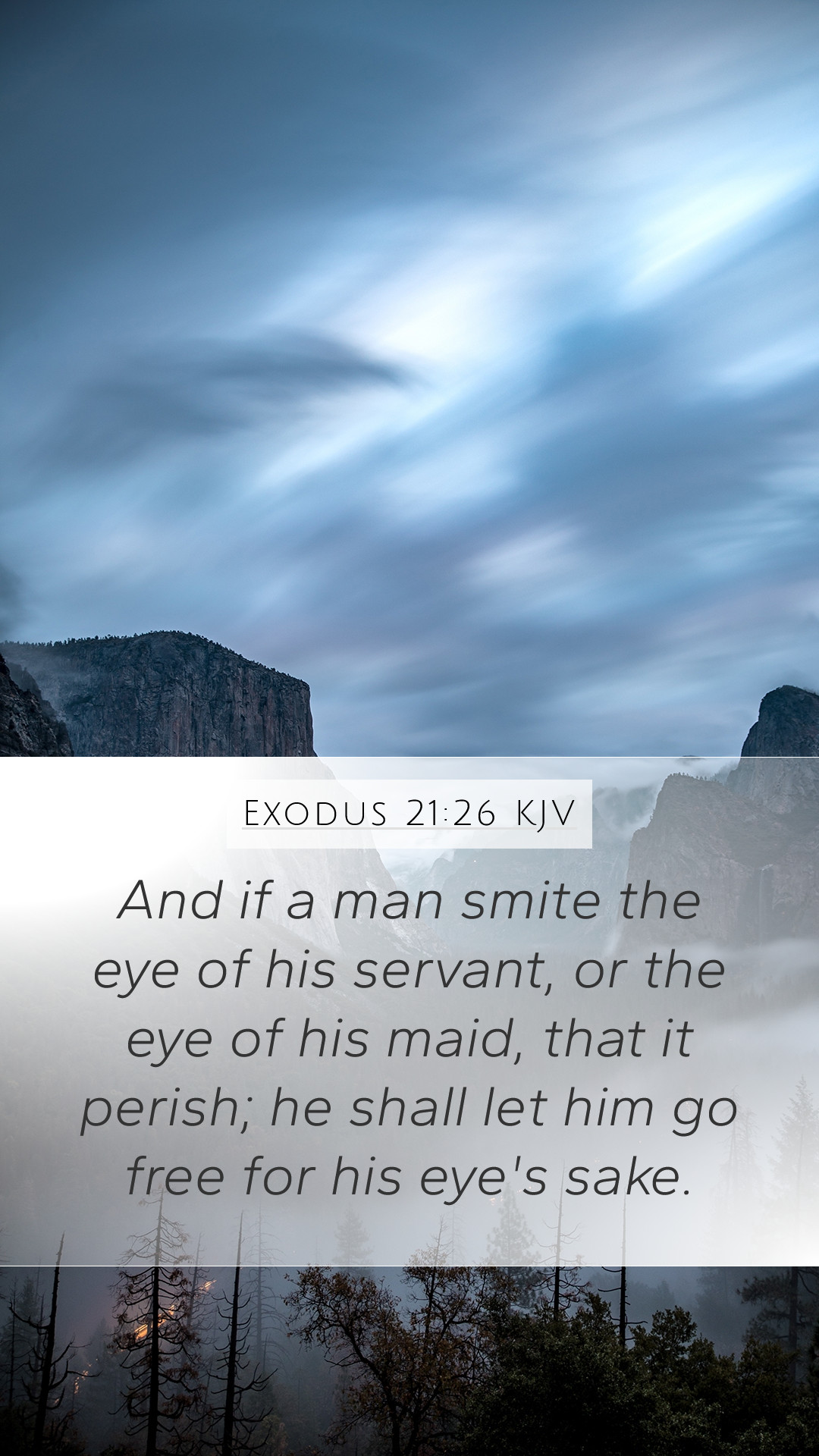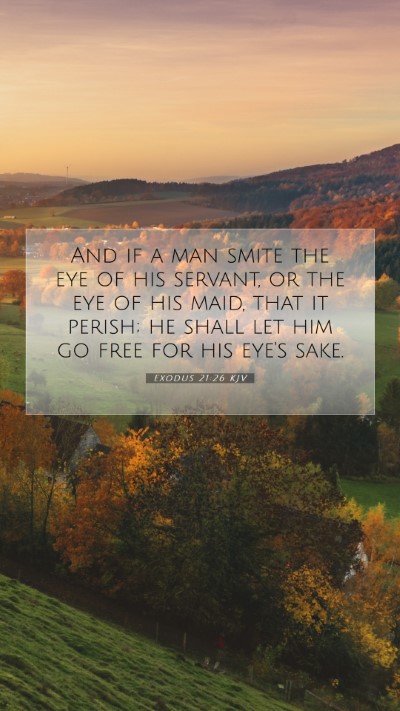Understanding Exodus 21:26
Exodus 21:26 states:
"If a man strikes the eye of his servant, or the eye of his maid, and destroys it; he shall let him go free for his eye's sake."
Meaning of Exodus 21:26
This verse from Exodus addresses the topic of servitude and the treatment of servants. It emphasizes the value of human life and the necessity of fair treatment for all, including those in positions of servitude.
Bible Verse Commentary
The verse can be understood through the insights provided by various public domain commentaries:
-
Matthew Henry: Henry emphasizes that this law signifies God's concern for the welfare of servants. It showcases the principle that harm done to another, particularly to the vulnerable, must have consequences.
-
Albert Barnes: Barnes points out the protective nature of this law within the societal structure of Israel. It underscores the seriousness of intentional harm and the idea that if a servant is maimed, they deserve freedom, thus reinforcing their inherent dignity.
-
Adam Clarke: Clarke adds that the law reflects a fundamental moral principle: that the value of human life and well-being is paramount. He notes that the provision for releasing the injured servant is a step towards justice.
Biblical Exegesis
In Exodus 21:26, the laws given to the Israelites include not just guidelines for worship but also for daily interactions. This particular verse serves as a legal statute that addresses a specific scenario:
-
Social Responsibility: The law emphasizes that even in hierarchical structures, such as servitude, every individual must be treated with respect and care.
-
Value of Restoration: By providing for the release of the injured servant, the passage underlines the importance of restoring those who have been wronged, drawing focus on the principles of justice and mercy.
-
Historical Context: Understanding the ancient Near Eastern context helps illuminate why such laws were necessary to protect the vulnerable within society, particularly in the context of servitude which was common.
Application of Exodus 21:26
What does Exodus 21:26 mean for the modern reader? The principles contained within this verse can be applied in various contexts today:
- Ethical Treatment: The passage advocates for fair treatment of all individuals, emphasizing the dignity of each person regardless of their social standing.
- Restorative Justice: The idea of restoring dignity to those harmed resonates today in discussions of social justice and equity.
- Personal Conduct: It serves as a reminder to ensure our actions towards others are considerate and just, calling us to reflect on our behaviors and their impacts.
Cross References
Related scriptures that enhance our understanding of Exodus 21:26 include:
- Leviticus 24:19-20: Discusses retribution and the principle of "eye for an eye."
- Deuteronomy 15:12-15: Addresses the treatment and rights of servants.
- Matthew 7:12: "So whatever you wish that others would do to you, do also to them..." This New Testament teaching reflects the core principle of reciprocity in ethical treatment.
Conclusion
In summary, Exodus 21:26 serves as a significant piece of scripture that informs us about the divine expectation of justice and the ethical treatment of others. It grounds our understanding in the theological and social context of ancient Israel while providing timeless principles relevant to our lives today.


